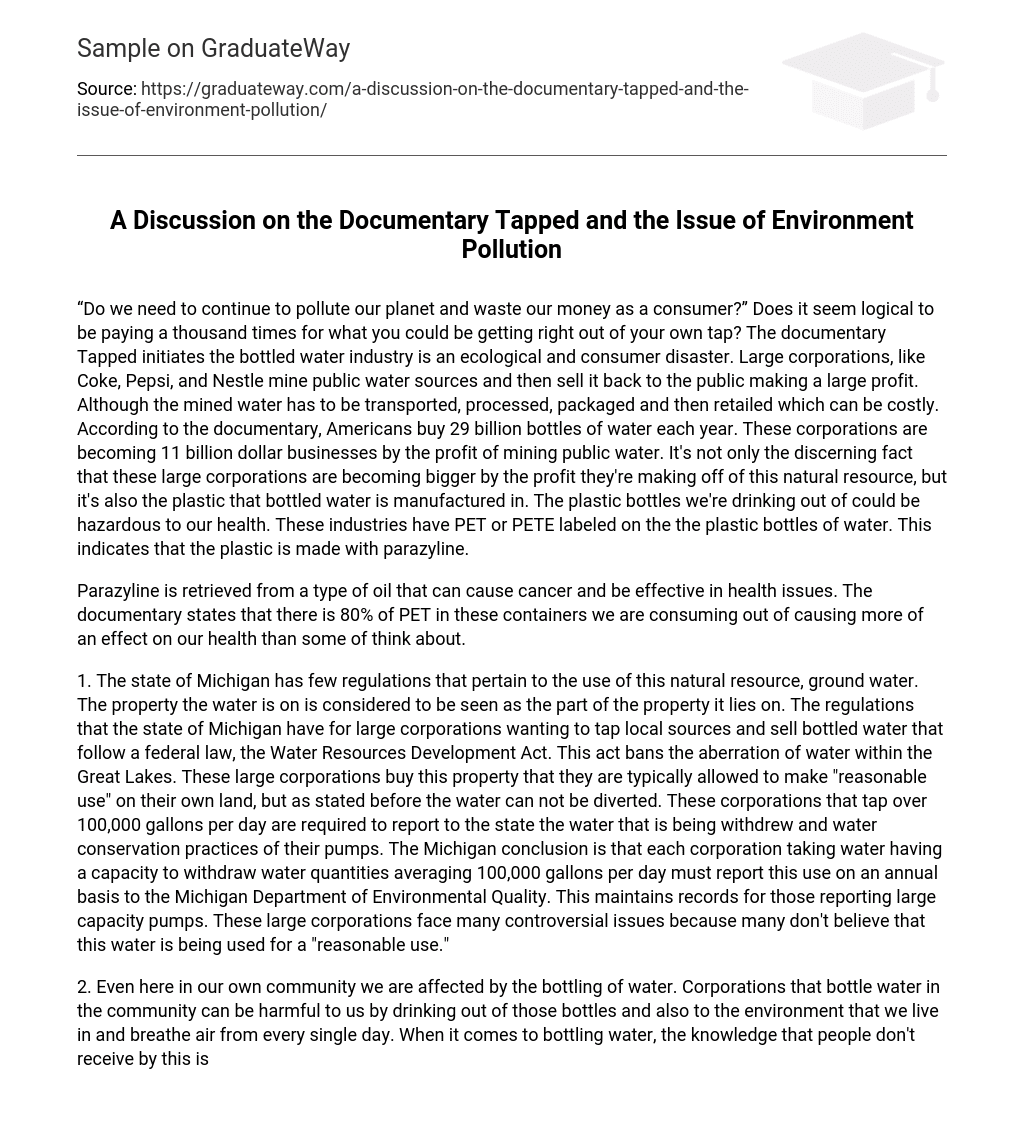The documentary Tapped reveals the detrimental effects of the bottled water industry on both the environment and consumers. It raises concerns about why we are polluting our planet and wasting money as consumers. This industry is dominated by major corporations such as Coke, Pepsi, and Nestle, who take public water sources and sell it back to the public for a significant profit. Despite the expensive procedures involved in transporting, processing, packaging, and selling bottled water, Americans still buy 29 billion bottles each year. As a result, these corporations have become multi-billion dollar enterprises solely by exploiting public water resources. However, concerns go beyond profit-driven motives; there are also potential health risks associated with the plastic used in manufacturing these bottles. The plastic bottles often bear labels like PET or PETE that indicate their composition containing parazyline.
Parazyline is derived from a particular type of oil that has the ability to both cause cancer and improve health conditions. The documentary exposes that the containers we utilize for consuming products consist of 80% PET, which has a more significant effect on our well-being than most people are aware of.
Groundwater use in Michigan is regulated with limited restrictions that view it as part of a property. However, large corporations must follow federal regulations outlined in the Water Resources Development Act. These regulations prohibit water diversion from the Great Lakes but allow corporations to use water on their own land without diverting it. Corporations withdrawing over 100,000 gallons of water per day are required to report their usage and conservation practices to Michigan’s Department of Environmental Quality. The department maintains records of annual reports submitted by corporations with an average daily withdrawal capacity of 100,000 gallons. There is controversy surrounding whether these corporations utilize the water for reasonable purposes.
2. The bottling of water in our community has various negative impacts. Firstly, consuming water from these bottles can be harmful to both our health and the environment. People often overlook the fact that the plastic used in these bottles can contain hazardous materials. The recycling symbol on the bottles, identified as PTP, becomes concerning as the plastic ages and potentially allows phthalates to seep into the water. Additionally, transportation fuel used by these bottled water corporations poses another health risk to the community. It is evident that these corporations heavily contribute to environmental degradation.





